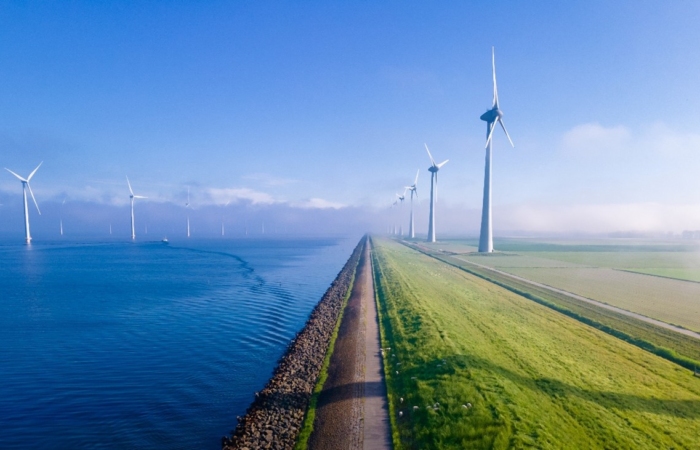
Caring for corporate reputation is one of the main motivations for Brazilian companies to adopt ESG practices, according to research by American Chamber of Commerce for Brazil (Amcham) in partnership with Humanizada. Organizations are joining the agenda because they seek to have a more positive impact on environmental and social issues, 78% said of them; they want to strengthen their reputation in the market, said 77%; and have the intention of strengthening the relationship with stakeholders (63%).
Carried out with almost 700 executives, more than half of which are the senior leadership of companies, mostly large and medium-sized, which together employ 500 thousand people and have revenues of R$ 756 billion, the study also identifies a clear growth trend in the adoption of practices ESG. O ESG Outlook 2024 , released this week, shows that 71% of companies are already implementing sustainable initiatives – a big improvement compared to last year, when 47% declared themselves to be in this condition.
Of the pillars of the acronym, social is the priority for 72% of the executives consulted. Then comes governance (68%), followed by the environmental pillar (66%).
Challenges: measuring indicators and having a strong ESG culture
The challenges, however, are still great. The report points out that 40% of those consulted report difficulties in measuring ESG indicators. Additionally, building a solid organizational culture is a hurdle for 32%. Also notable challenges are the lack of financial resources (30%) and adequate methodology (30%) and the absence of a strategic vision (26%), among others (see table below):
| Main challenges of the ESG agenda | |
| Difficulty measuring ESG indicators 40% | |
| Lack of a strong ESG culture 32% | |
| Lack of financial resources 30% | |
| Lack of adequate methodology 30% | |
| Lack of a strategic vision 26% | |
| High complexity of regulations 25% | |
| Lack of strategic partnerships 23% | |
| Difficulty communicating the agenda 22% | |
| Lack of internal knowledge 22% | |
| Uncommitted leadership 14% | |
For 77% of participating executives, the ESG agenda should be a responsibility of CEOs, presidents and VPs. They believe, however, that the government should also lead this process, according to 67% of the interviewees. According to the report, the government should create incentives for research and development in environmental sustainability and prioritize the energy transition. They also highlighted the need to facilitate sustainable financing, among other issues.
According to the report, the results suggest the urgency of integrating sustainability more deeply into business strategies. This includes the need to develop capable leadership, implement transparent governance policies, and align investments and supplier assessments with ESG criteria.
“The expansion in the adoption of sustainable practices is great news, reflecting the beginning of the significant integration of the ESG agenda into business. There is ample room for improvement and evolution, innovations and public policies aimed at the topic continue to be essential to deepen our commitment and expand the effectiveness of ESG practices in the market.”
Abrão Neto, CEO of Amcham
How to accelerate the ESG agenda
The survey also questions executives about how it is possible to accelerate the ESG agenda. According to the results, the training and development of leadership and employees (56%); considering sustainability as a business strategy (48%) and having a dedicated budget for investing in ESG initiatives (47%) are critical factors for the advancement and success of the agenda.
One of the greatest experts on the subject, British consultant and professor John Elkington highlighted the importance of adopting and maintaining ESG practices as instruments for companies' reputation and strategy. in an interview with Reputation Feed, at the end of March. “It is true that many companies understand that the ESG agenda can have a good or bad impact on their reputation. And, at least initially, they try to deal with it through government relations and public relations,” he said. “But if that's where they stop, I think it's a complete and total mistake. Before, it used to be about things like your company profile, how your stakeholders viewed you, and whether your customers were loyal. However, we are seeing that, increasingly, ESG and sustainability agendas are driving structural changes in companies.”



